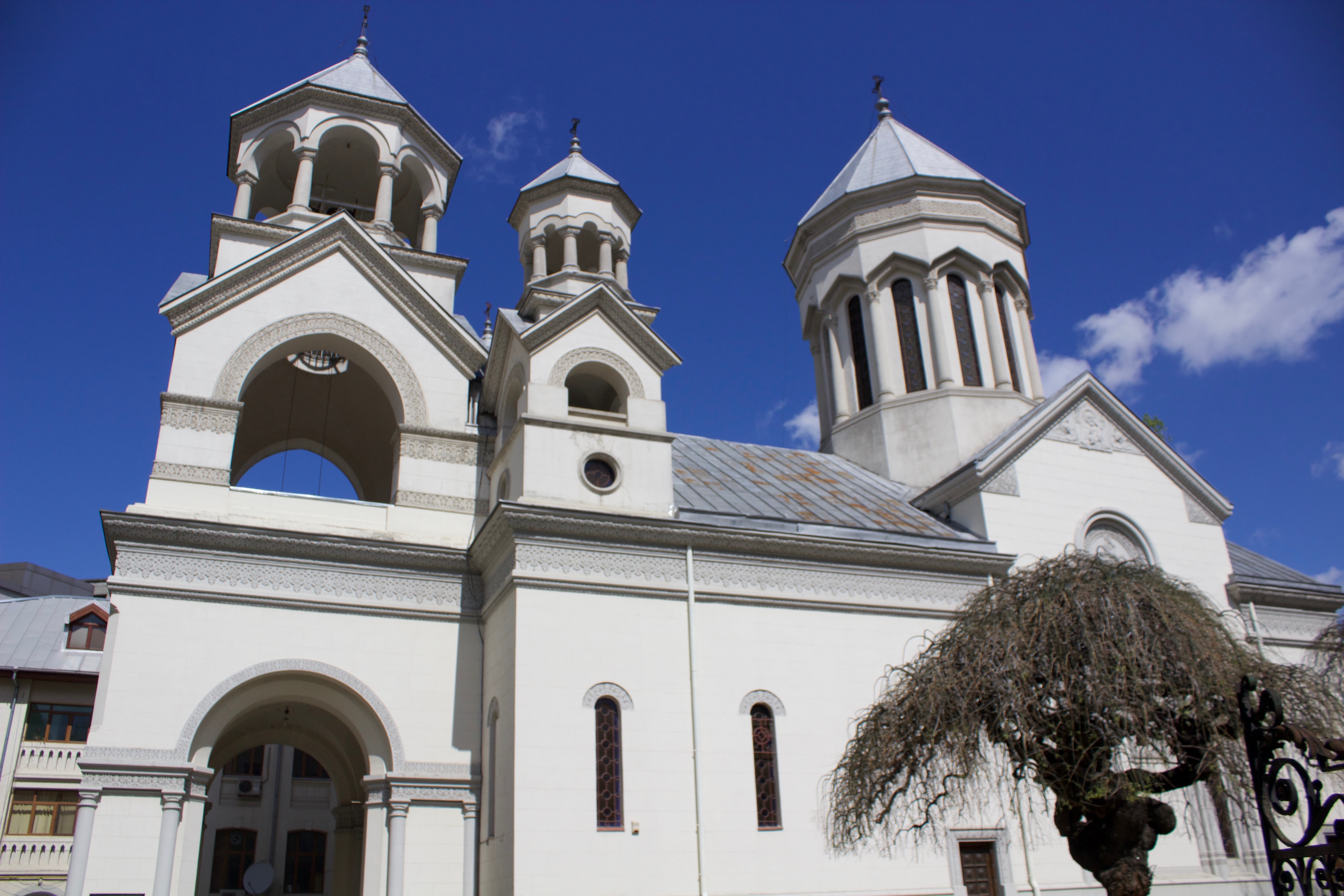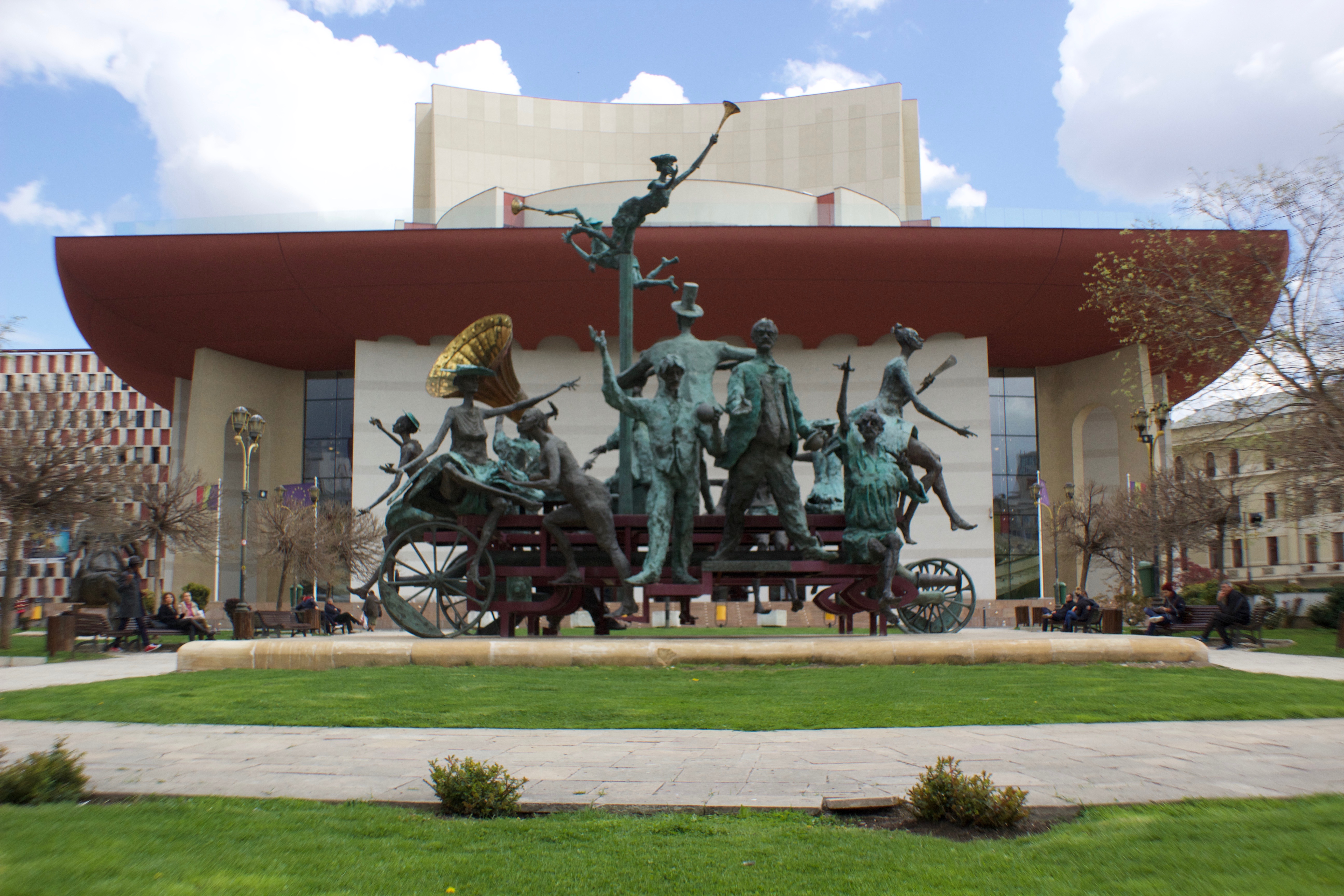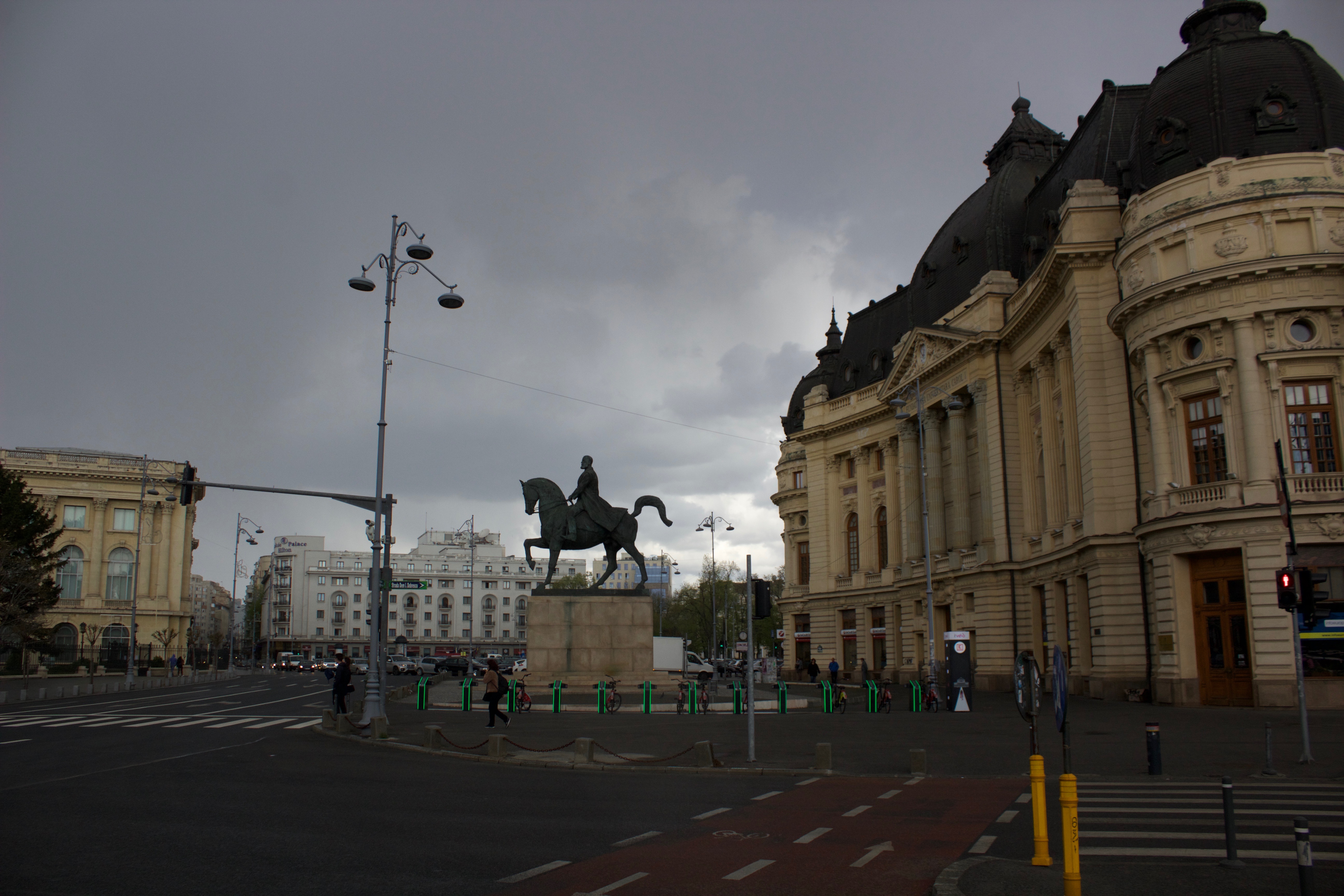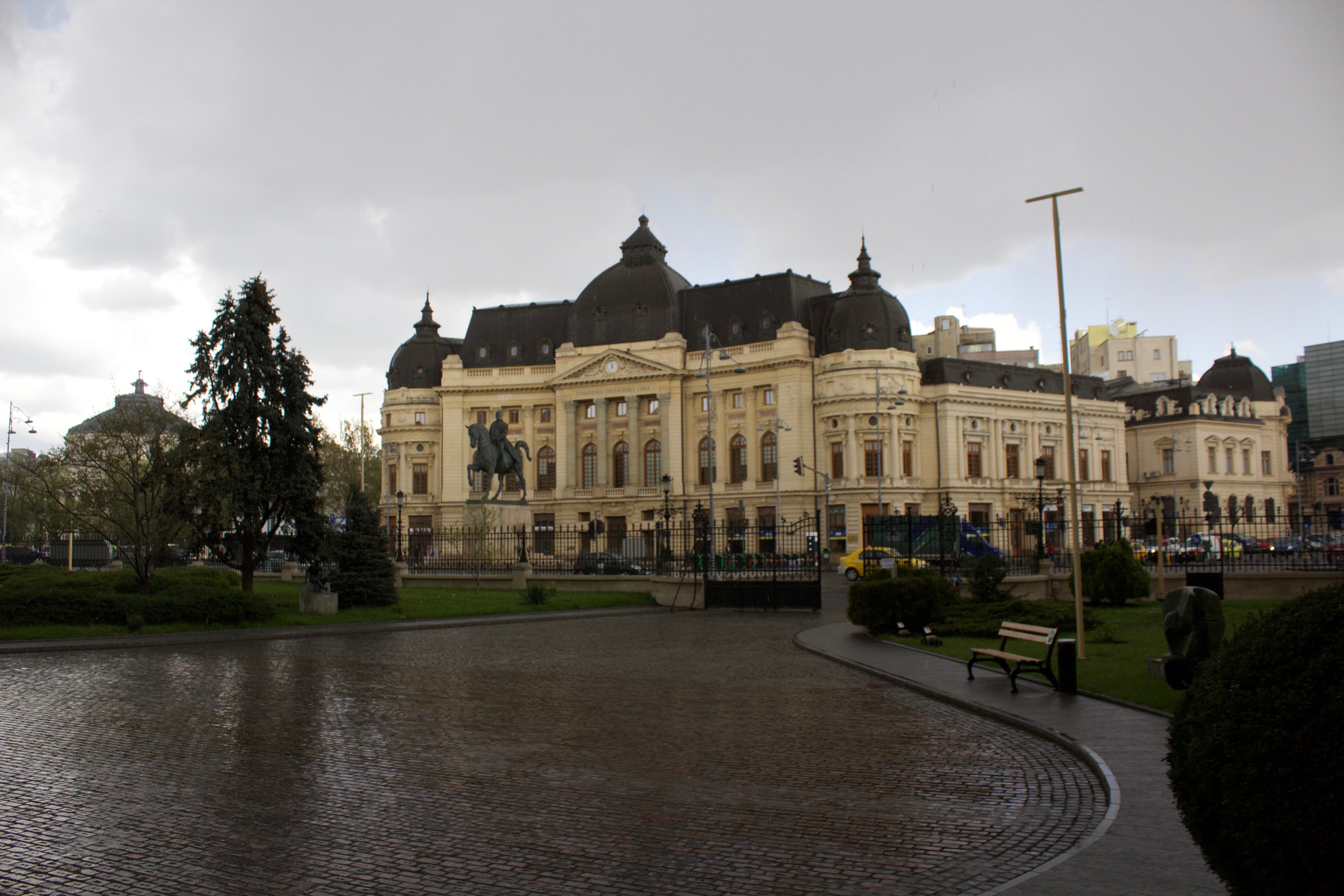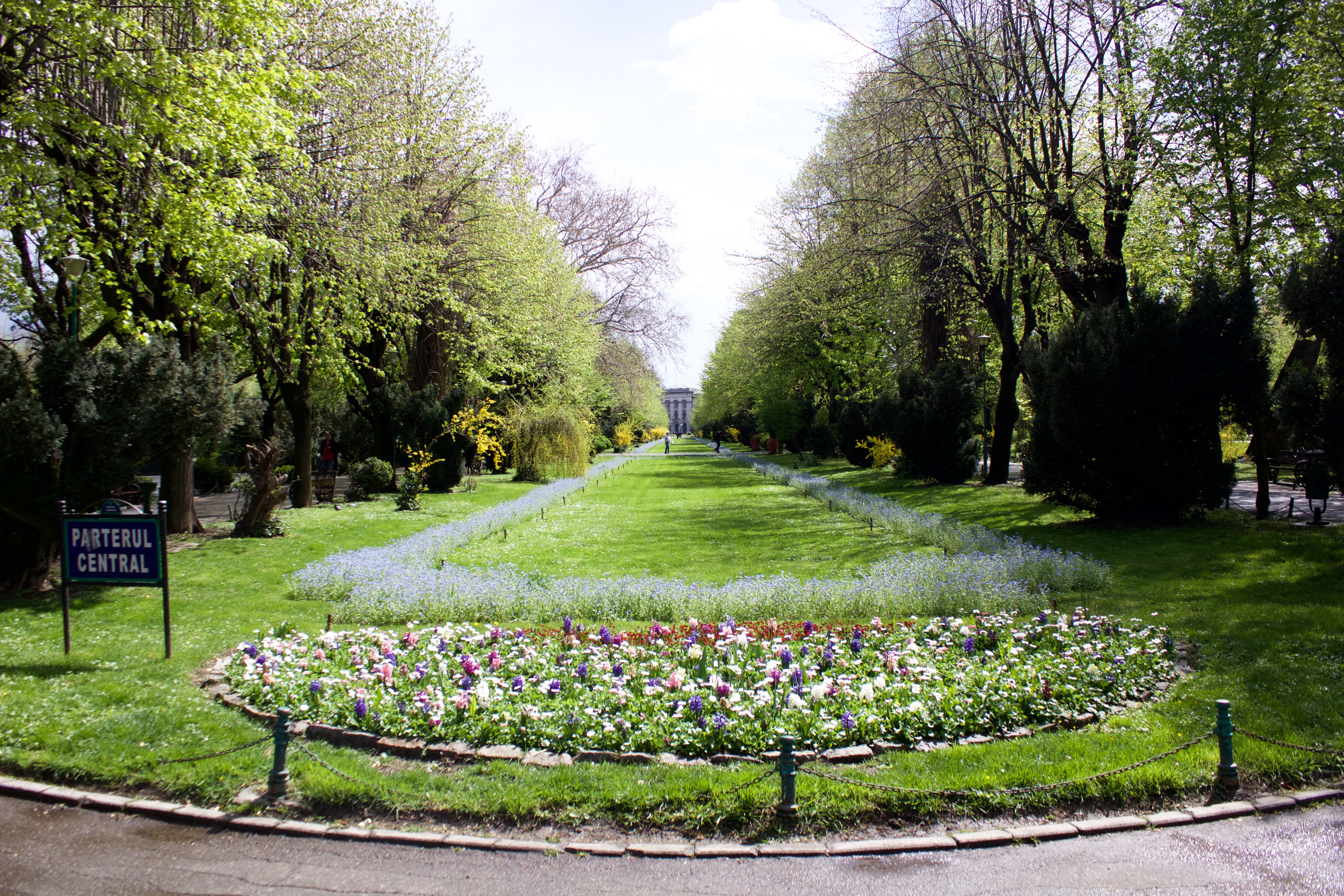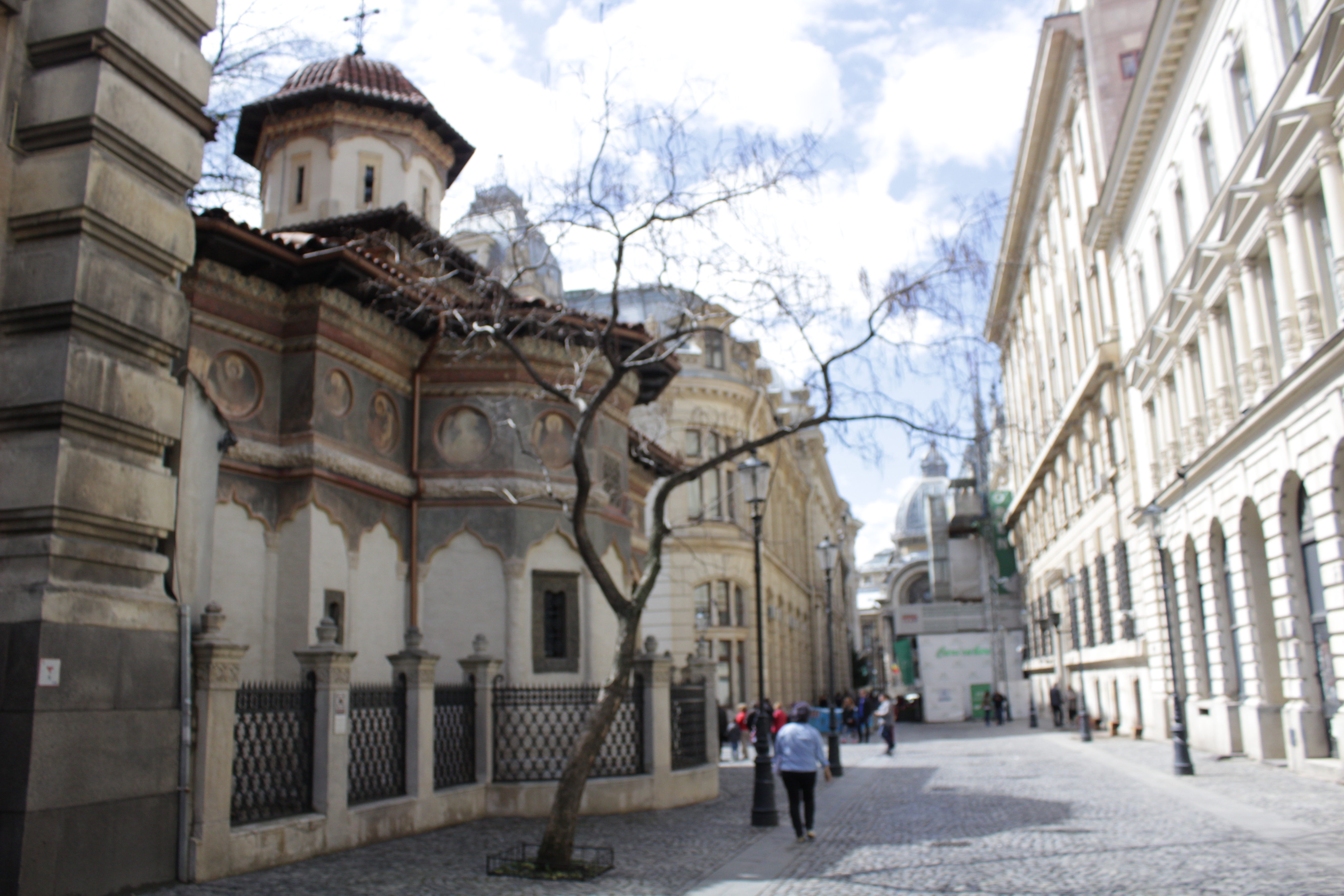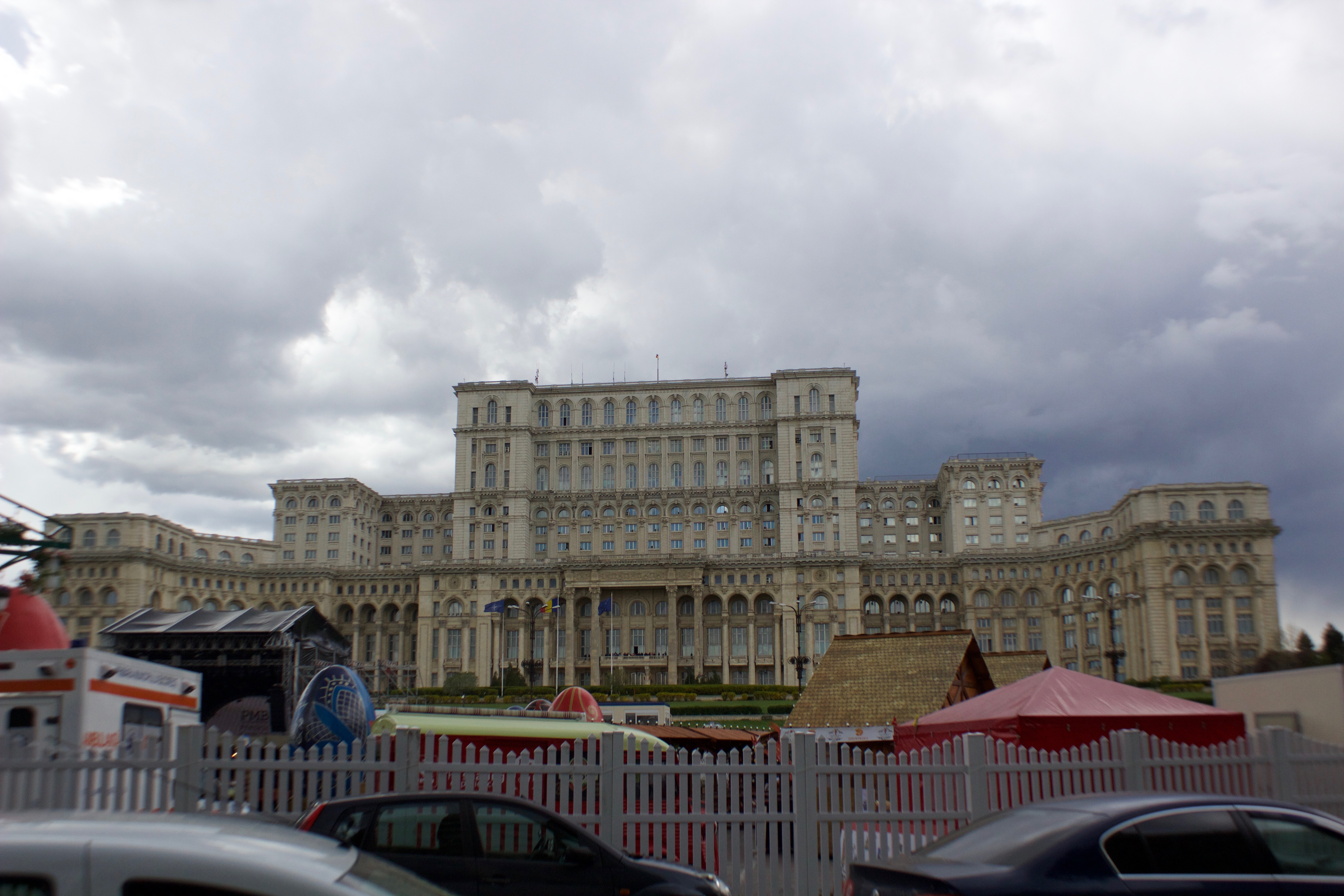Hello!
I am currently in Bucharest, Romania, which if any of you have read or seen Dracula, is the spooky nation (well, more of the region of Transylvania) that inspired the story of that infamous, lifeless immortal.
Honestly, I don’t like Bucharest, but I have the feeling that were I to stay longer in this spooky city, I would fall madly in love. It is just so delightfully creepy! However, it is hard to adjust to, that is, it’s a really hard switch to make from the beautiful sun-and-sand locations I have spent nearly the last two weeks of my European country hop about. There are policemen dotting every few hundred meters and sirens of police cars going off about every hour or so. For some reason, there is a dark cloud over Bucharest that I highly suspect has a lot to do with the poverty of the country and the history of its transition from empire to communist country. Coming from the United States, it is a little hard for me to realize that I am in Romania, which is in eastern Europe and in a completely different historical story than the western world.
Living in the free world — I’ve gotten a lot of criticism from Russians, Ukrainians, Serbians, and anyone else who envies my visa. They say I come from a land of complete freedom and opportunity and I am not even aware of what I was born into. They say this because for them, visas are expensive and difficult to obtain, and America is still seen to be the country of opportunity.
While I do understand the resentment, it really has hurt my feelings over the last few years to hear this kind of commenting. I don’t tell them that it is bad in the United States, too, that lots of people in their twenties have massive student loans and high interest rates for college education, who can’t find jobs appropriate for their learning or for their desired career, and who live on pay check to pay check. It is not like Americans don’t have fear of poverty — it just looks less noticeable because we don’t really see it from the outside. But many Americans are cutting back on food and health care to have more money to spend elsewhere, and food insecurity is a problem that affects a high percentage of the population (meaning wondering where the next meal will come from).
I have not been alone in experiencing poverty, in fact, I have lived since turning 18 on a very modest income and lifestyle. It’s not because I don’t want to work, because I worked part-time all throughout college. It’s because afterwards, when I wanted to join the workforce, I was up against hundreds or thousands of applicants who had very similar credentials for the jobs I was applying for, jobs that suited my career field and degrees, and I was getting rejected everywhere.
Also, to be completely forthcoming, I did not want to join the corporate workforce and sit behind a desk like the rest of my Management and Finance majors went on to do in Big Four companies and well known firms. I wanted to be self-employed, make my own decisions, build my own lifestyle, have freedom to work when and where I wanted, and be happy doing what I loved.
That means you’re ‘freelancing’ or ‘working online’ and that really doesn’t make much money in the first few years (or at least, not for me, and I was working multiple part-time jobs most of the time). So basically, I was living just like they were, despite being in the land of the free and the land of the opportunists, and I was experiencing just like they were the hunger and the struggle and the often depressing facts that the ‘Great Recession’ had lent to my whole generation: that even though we had tried so, so hard to get ahead, things had become worse and worse each year, with opportunities shrinking and salaries dropping and hours increasing.
While this was all too much to say to these critical foreigners, I did take in their points of view and try to see it from their side. It really must be hard growing up in a country where there is no opportunity whatsoever to rise, no matter how hard you try. This is what Bucharest seems like to me. The once beautiful old city was largely demolished and turned into communist-style block buildings in 1965-89 under Nicolae Ceausescu’s leadership.
Bucharest may be in a critical place for standards of quality of life, but I can tell just in this short time of being here, that it was once a vibrant cultural centre in between the two World Wars and this undercurrent remains through all its instability and changes. I walked through the Old Town, stopped in one of the churches there and admired the frescoes on the ceilings, saw the Cismigiu Garden’s spring beauty, walked around and around seeing the remains of the old town’s architecture, the old palace that is now the National Museum of Art, the National Bank of Romania, and so on.
Prices are very low for the USD and Euro in Romania (about 4 to 5 to 1 Lei), and I was surprised how cheap I could buy things like food. I didn’t feel like changing my few Euros to Lei, so I stuck to using my credit card in markets and bought the pasties I have been seeing in shop windows everywhere. They taste amazing, and once again I am very thankful I can tolerate gluten! I really don’t drink alcohol, but it seems that lots of places exist for nice meaty dinners combined with wine or beer. I am not really a meat eater, though, so the pasties were enough for me.
By far my favourite cultural sight in Bucharest was the Cismigiu Gardens, which I was told are the oldest gardens in Bucharest. They were blooming with tulips and had leafy boulevards leading around a lake with a fountain in the middle, with lots of other blooms and lots of chirping birds. I thought this was a very necessary respite from the unhappy hustle and bustle of Bucharest. I say unhappy because it seems like the numerous amount of policemen are around to prevent any protests from springing up. When I was walking around Cismigiu Gardens, I saw and heard protesters crowded on one side of the street across from me. It simply feels like organised crime has gained a serious foothold in Bucharest due to changing governmental policies and a lack of public affairs attention to lifestyle standards.
Still, don’t be put off, I would recommend Bucharest to anyone who wants to come here. I went out again at night and was rewarded with a completely changed face of the city: there were strings of lights hanging over the main streets in a very festive way, and nearby the University, which is near to my Airbnb, an amazing funky jazz band was playing in a small tent near the Cismigiu gardens and street sellers. I caught most of their one hour performance and it was thrilling to hear. Despite the occasional rain and the cold (I am finally able to wear the winter jacket Raphael made me bring along), I managed to find a sight that was inspiring and original at last.
It really made coming to Bucharest worth it!
Now for the photos. As always, all opinions are my own.
